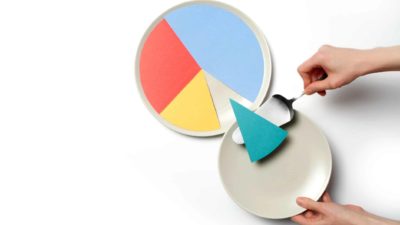This article was originally published on Fool.com. All figures quoted in US dollars unless otherwise stated.
There's a clear trend toward a cashless society, not only in the United States, but all over the world. While cash isn't likely to go away entirely, at least not anytime soon, an increasing amount of financial transactions are taking place through credit and debit cards, mobile apps, and other non-cash methods.
When there's a clear trend like this, there are often interesting opportunities for long-term investors to take advantage of. And that's especially true when we're talking about a $185 trillion market opportunity, which is the current estimated volume of payments flowing around the globe.
Two particularly interesting companies that investors might want to take a look at are fast-growing fintech company Square (NYSE: SQ) and payment processing leader Visa (NYSE: V). However, while both are great companies, these are two very different investments. So here's a quick look at each one to help decide which is the better buy for your portfolio.
Square: A massive disruptor with lots of growth potential
To call Square a major disruptor would be like calling Amazon.com (NASDAQ: AMZN) a pretty successful retail company. The company has transformed the financial landscape by making it practical for all businesses, regardless of size, to seamlessly accept credit and debit card payments.
However, Square has evolved dramatically since it started selling those little card readers sticking out of merchants' smartphones. Its payment processing hardware is used by businesses of all sizes, and there is more than $100 billion in annualized payment volume flowing through its systems. The Square Capital business lending division has originated billions of dollars in small business loans, and the company has created a small business ecosystem.
The personal finance side of Square's business is becoming even more impressive. The company's Cash App now has 30 million active users and in addition to its core person-to-person payment functionality, Cash App now enables users to buy and sell bitcoin, invest in stocks, and much more. But Square isn't done yet -- its vision is to be a one-stop shop for its users financial needs. It could add things like personal loans, high-yield savings, insurance products, and more to the ecosystem over time, just to name a few.
Visa: The largest payment network in the world
If you're reading this, there's a good chance that there's at least one credit or debit card in your wallet that bears the Visa logo. The largest payment network in the world, there are nearly 3.5 billion Visa cards in existence and the company has about $9 trillion of annualized payment volume flowing through its network.
However, don't think because Visa is such a massive company that it is as big as it's going to get. For one thing, while most payment transactions in the U.S. are now cashless, that isn't the case in many parts of the world. Credit card acceptance isn't nearly as universal in many places, and it is estimated that as many as 80% of payment transactions around the world still take place in cash.
What's more, the $185 trillion global payments market includes things like person-to-person and business-to-business transfers, areas where Visa hasn't really tapped into yet. A few months ago, I wrote that Visa could become a $1 trillion market cap company in the not-too-distant future (currently it's less than half of that), and my opinion hasn't changed.
Don't think it has to be either-or
One of the most common questions I'm asked about the fintech world is to the effect of "should Visa be worried about having Square and other disruptors take their business?" And the answer is no. Square provides the systems that facilitate payment transactions and Visa runs the network that processes them. Both are needed for a transaction. And there's plenty of room for both to benefit from the cashless trend.
The biggest question you should ask as an investor is how much volatility you're willing to deal with and what your risk tolerance is. Square has tremendous growth potential, but is also a richly valued stock that is priced for significant growth going forward. On the other hand, Visa essentially dominates payment processing along with Mastercard (NYSE: MA) and is a much better fit for investors who are looking for steady and predictable gains.
In a nutshell, both are great stocks and you probably won't go wrong with either. As more of a growth-focused investor, I'd probably go with Square if I had to add one to my portfolio today (In full disclosure, I've been a Square shareholder since shortly after the IPO), but there's a solid argument to be made for both.
This article was originally published on Fool.com. All figures quoted in US dollars unless otherwise stated.









